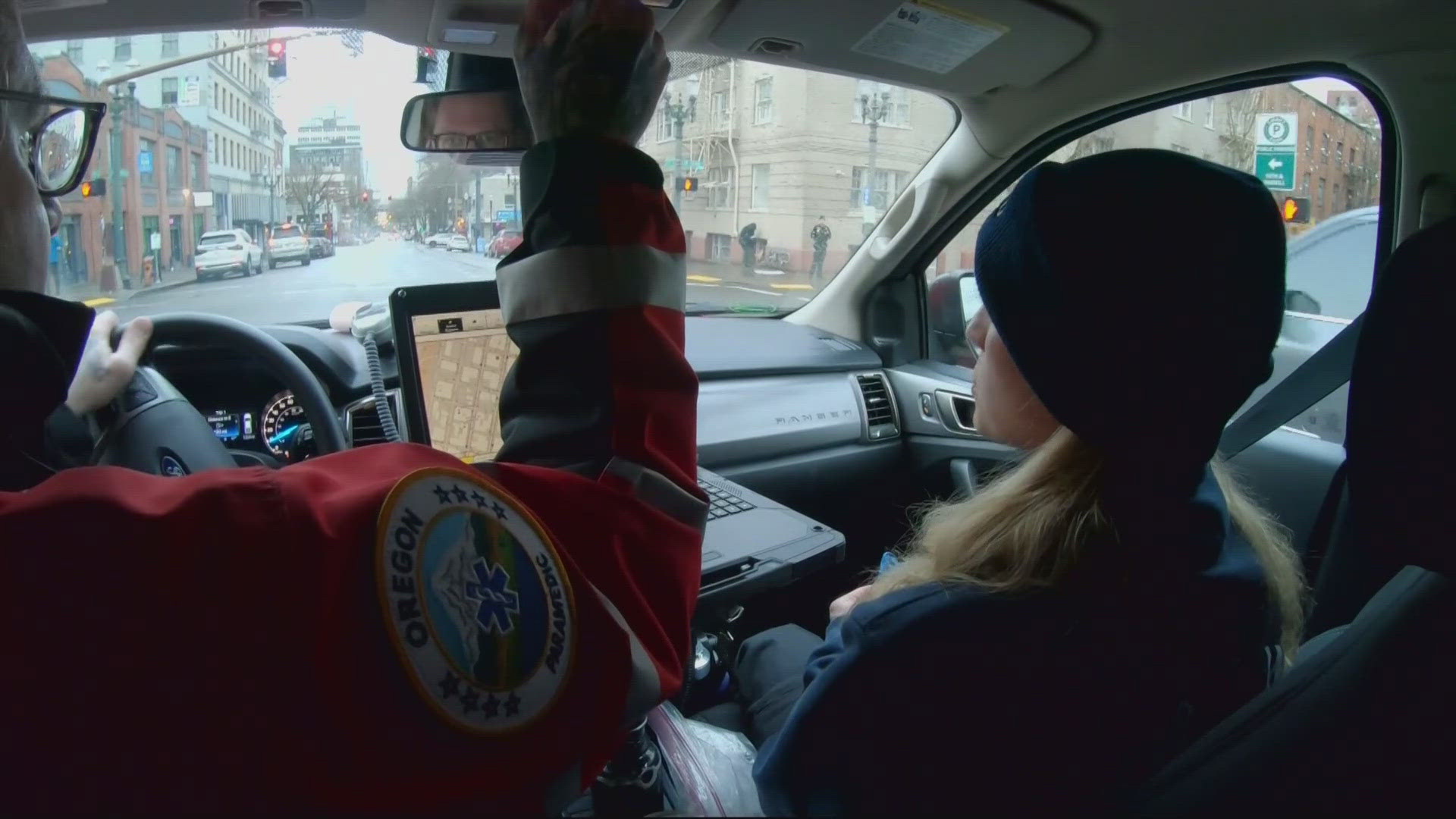PORTLAND, Ore. — A speckled patch of shade from a tree in Old Town shelters Dee Dee, who is homeless, from the beating sun. It’s the first 90-degree day of the year, and she’s already feeling the burn while sitting in her sleeping bag surrounded by a strong odor of urine.
“It gets really hot sometimes out here, and it is not OK,” she told KGW.
Since Monday, Portland first responders have been called to 195 opioid overdoses, according to data from Portland Fire & Rescue Community Health. It’s unclear how many were fatal, but the data shows 53 were non-fatal.
Last month, they were called to just over 1,000 opioid overdoses across the city — more than 200 each week. The data shows they are often happening in and around Old Town, where Dee Dee stays.
“That’s kind of like the norm right now,” she said. She’s been homeless for 20 years and uses just about anything to get by.
“I like crack. I like crystal. I like heroin. I like fetty. I like anything, pretty much,” Dee Dee said. She didn’t have any of those drugs on her Friday morning but was already making plans for how to get more.
She's not alone.
“The fentanyl trade is still coming. There’s a supply chain coming,” said Rick Graves, the public information officer for Portland Fire and Rescue.
Their teams said overdoses typically increase at the start of each month often when stronger batches of drugs like fentanyl hit the streets. That’s happening now.
Dee Dee agreed: “Oh, yeah, there is, definitely. I’ve ran into it a couple times. It’s really kind of awful. It’s horrible.” She knows it when she sees it, too: “Really thick syrup, white syrup." The high-quality stuff, she said, turns "golden brown."
“Folks are still getting a hold of it and overdosing, and we’re responding,” Graves told KGW.
The crisis continues just one week after Portland’s 90-day fentanyl state of emergency ended.
“There’s more work to be done and we all know that, and I want you to know that the state will continue to be a key partner in the work here in Portland,” said Gov. Tina Kotek at a press event on May 3.
The biggest achievement to come out of the 90-day emergency was increased collaboration between bureaus.
“No, we weren’t going to successfully eliminate fentanyl in the 90 days, but we were going to get a better plan,” said Graves on Friday. “Now, the communications are being made, plans are being discussed on how we can enact a better response to address the fentanyl crisis in our community.”
As they continue to figure that out, Dee Dee does what it takes to fill her supply.
“Most of the time, I just ask the drug dealer, and the drug dealer knows that I’m broke and I’m poor,” she explained.
Last week, Kotek directed state police to continue working with Portland police for the next six months to respond to the fentanyl crisis and track down dealers. Earlier this year, Portland Fire and Rescue launched a special team called “CHAT” to help respond to overdoses downtown and take the strain off firefighters. They are hoping for more funding to be able to respond city-wide and 24/7, seeing as the number of overdoses happening each day is not slowing down.

